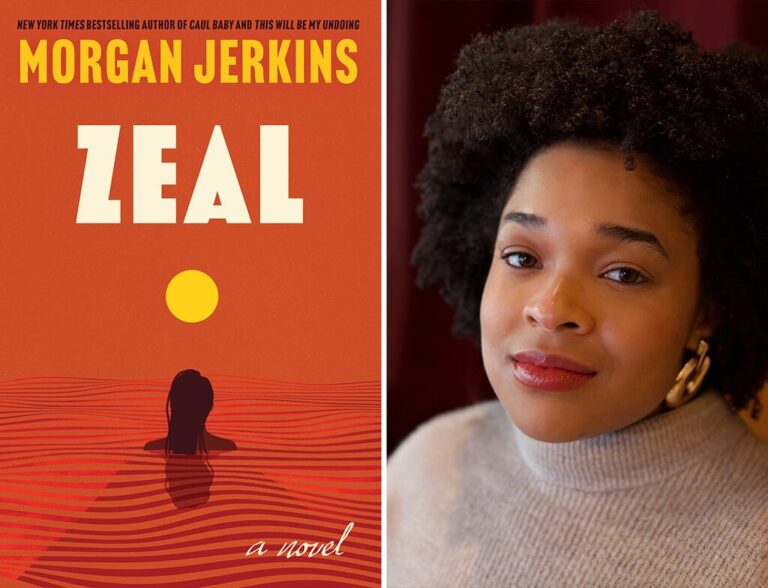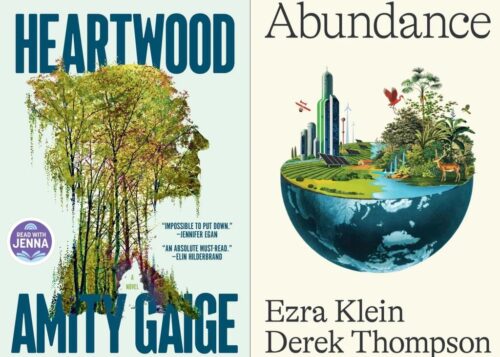Following two best-selling nonfiction books and a well-regarded debut novel, Morgan Jerkins forays into historical romance in her cinematic second novel, “Zeal.” The book celebrates the enduring love between Tirzah and Harrison, two freed Southern slaves separated by the Civil War. The implications of their star-crossed love span generations, eventually reaching into Covid-era New York City. Despite leaning into the familiar narrative devices of romance dramas, “Zeal” never stops being compelling as the twists and turns of Tirzah’s and Harrison’s family stories illuminate lesser-known aspects of Black American history.
Just as the discovery of Jack’s sketch of Rose in Titanic becomes the film’s impetus to tell their tragic love story, Tirzah’s 1865 love letter to Harrison scaffolds the book’s central romance plot. We open during Ardelia and Oliver’s Brooklyn engagement party when Oliver’s mother presents the antique letter to the couple, a meaningful gift as Oliver is one of Tirzah’s descendants.
Soon the reader is transported to Natchez, Miss., where Harrison, just released from the Union Army, searches for Tirzah, hoping to rekindle their relationship. The formerly rich city is in ruin, and the plantation where Tirzah once worked has been abandoned. Jerkins’s description of post-war Natchez could easily be mistaken for post-apocalyptic: “As he and his fellow soldiers rode their horses on a trail alongside the Mississippi approaching the city, they saw that all the levees had been destroyed. With each step closer to their destination, the smell of festering animal carcasses became stronger. Weeds and swampland had swallowed up fields upon fields of cotton.”
Bibliophiles: Morgan Jerkins on diving into obsessions
Harrison posts an ad searching for Tirzah through the Freedman’s Bureau. In the months that pass while he waits for a response, he and the community of formerly enslaved Blacks live under constant threat of violence. Harrison is rounded up and thrown into jail, and when he’s bailed out by Tabithah, a Freedman’s Bureau worker, she tells him that his friend Ezekiel has been murdered for daring to bargain for more wages on his plantation. Jerkins does not varnish the sheer terror of post-war life for the formerly enslaved. Ezekiel’s corpse is “gutted” and upon seeing his body, “Some gagged and covered their mouths.”
Tirzah’s steely heroism in the face of white supremacy and violence makes her the book’s most memorable character. She not only survives, she rebuilds. Her story spans the deep south to the great plains when she and other family members head to Nicodemus, Kansas, which today is a National Historic Site as the first Black community west of the Mississippi.
Jerkins gives her such screen-ready dialogue that it’s easy to imagine Tirzah’s plotline adapted for film or TV. The historical parts of the book, which run from 1865 to 1912, are riveting, as we watch tightly knit Black communities help each other survive in the face of inevitable displacement at the hands of violent whites. The history is meticulously recreated, down to the way people say the word “children” (“chirren”), which eventually becomes a key plot point in the contemporary storyline.
Morgan Jerkins on shouldering the burden of community
Perhaps inevitably, the stakes of Oliver and Ardelia’s romance feel low in contrast to the epic historical sweep of Tirzah and Harrison’s everlasting love. Oliver is a doctor at New York-Presbyterian Hospital when the novel coronavirus arrives in America. The stress and trauma of his grim work cause him to disengage from Ardelia’s wedding planning. Eventually they take a break from each other, and the break evolves into a breakup. Tirzah’s love letter sparks Ardelia’s genealogical curiosity, and her search for the truth behind her ancestral origins brings her back to Oliver.
Occasionally, the romance plot’s need to rush forward comes at the expense of character depth. Still, one can forgive a few glitches in an ambitious book that covers over 150 years and parts of Black American history that aren’t widely known. If you believe in fated mates, “Zeal” is a page-turner that will teach readers a few things about our past.
Leland Cheuk is an award-winning author of three books of fiction, most recently “No Good Very Bad Asian.” His writing has appeared in The Washington Post, San Francisco Chronicle, NPR, Salon, among other outlets.
ZEAL
By Morgan Jerkins
Harper, 416 pages, $28.99




Comment count: